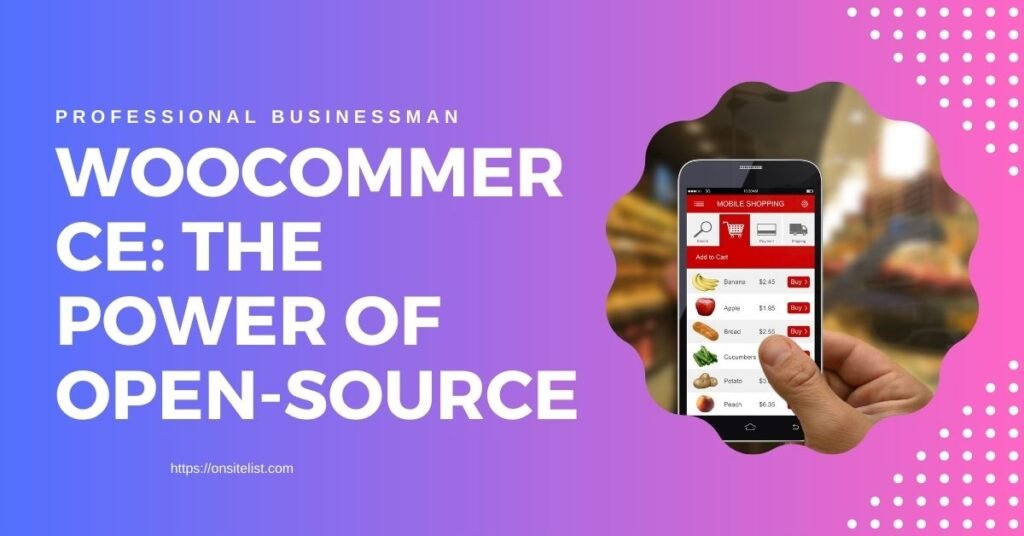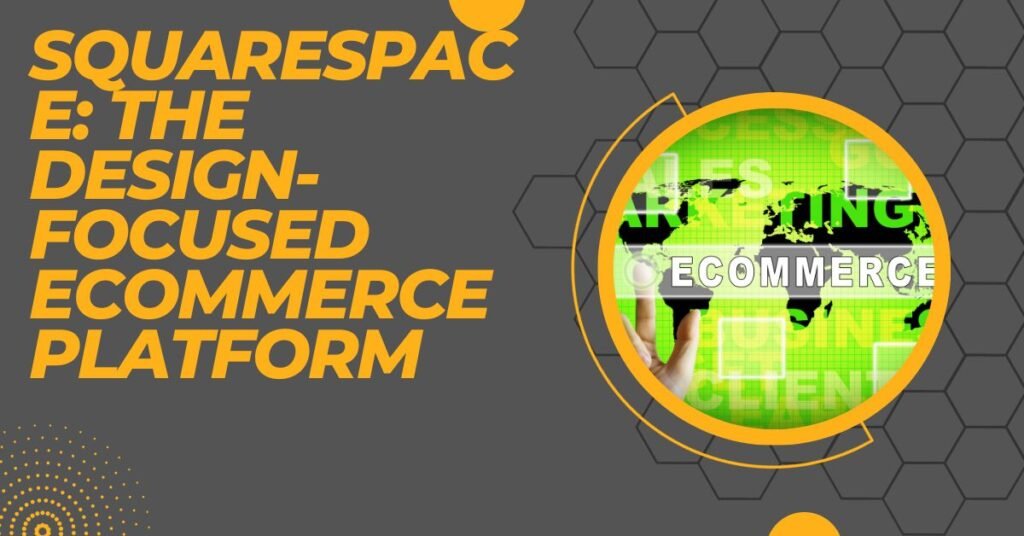In the ever-changing world of e-commerce, where businesses strive to establish a strong online presence and capture the attention of discerning consumers, selecting the best e-commerce platforms is crucial for success. With a plethora of options available, each with its own unique features and benefits, making an informed decision can be a daunting task.
To help you navigate this intricate process, we’ve meticulously analyzed the top e-commerce platforms, considering factors such as ease of use, scalability, functionality, and overall value for money. Our carefully curated list of the best e-commerce platforms for 2023 will equip you with the knowledge to make a confident choice for your online business venture.
Also read about it: top 10 tourist attractions in the world
5 Best E-Commerce Platforms
1. Shopify: The Reigning Champion

Shopify, a pioneer in the e-commerce realm, has consistently maintained its position as a top contender, catering to businesses of all sizes, from startups to established enterprises. Its user-friendly interface, extensive range of customizable themes, and seamless integration with various marketing tools make it a popular choice for entrepreneurs and experienced business owners alike.
Key Features:
- Drag-and-drop store builder for effortless setup
- A vast library of professional-looking templates
- Robust inventory management system
- Secure payment gateways for worry-free transactions
- Comprehensive marketing and analytics tools
2. WooCommerce: The Power of Open-Source

WooCommerce, a WordPress plugin, emerges as a force to be reckoned with, offering a robust and scalable e-commerce solution. Its open-source nature allows for extensive customization, making it a favorite among developers and tech-savvy individuals. WooCommerce seamlessly integrates with the vast WordPress ecosystem, providing access to a plethora of plugins and themes.
Key Features:
- Highly customizable and expandable platform
- Cost-effective solution due to its open-source nature
- Integration with a wide range of WordPress plugins and themes
- Powerful features for inventory management, marketing, and analytics
3. BigCommerce: A Versatile Ecommerce powerhouse

BigCommerce, a robust and scalable e-commerce platform, caters to businesses of all sizes, from small startups to large enterprises. Its comprehensive feature set, coupled with its ability to handle high volumes of traffic, makes it an ideal choice for businesses with extensive product catalogs and ambitious growth plans.
Key Features:
- Scalable platform to accommodate increasing business needs
- Strong SEO capabilities to boost search engine visibility
- Advanced product management tools for efficient inventory control
- Integration with popular third-party applications
4. Squarespace: The Design-Focused Ecommerce Platform

For businesses that prioritize a visually appealing and user-friendly online store, Squarespace stands out as a top choice. Its intuitive drag-and-drop interface, coupled with its stunning collection of professionally designed templates, makes it an ideal platform for creating aesthetically pleasing and engaging e-commerce experiences.
Key Features:
- Stylish and customizable templates for a high-impact online presence
- Easy-to-use drag-and-drop interface for seamless store creation
- Built-in marketing and analytics tools to optimize store performance
- Integration with popular payment gateways for secure transactions
5. Wax: The Ecommerce Platform for Beginners

Wax, a popular website builder, has expanded its reach into the e-commerce realm, offering a beginner-friendly platform for creating online stores. Its intuitive interface, paired with its extensive library of templates and pre-built store designs, makes it an ideal choice for entrepreneurs and businesses venturing into the world of e-commerce.
Key Features:
- User-friendly drag-and-drop interface for effortless store creation
- A wide range of professional-looking templates and store designs
- Integrated marketing and analytics tools to track store performance
- Affordable pricing plans for businesses of all sizes
Why Choosing the Right Platform Matters

Selecting the best e-commerce platform is more than a technical decision; it’s a strategic move that can significantly impact your business’s trajectory. The right platform ensures seamless operations, customer satisfaction, and scalability, ultimately contributing to your bottom line.
Impact on Business Success
The choice of an e-commerce platform directly influences your business’s success. From user experience to transaction security, every aspect plays a pivotal role. A well-chosen platform can streamline operations, enhance customer trust, and boost overall sales.
Key Features to Look For

Amidst the myriad of options, certain features set the best e-commerce platforms apart. When evaluating options, focus on:
User-Friendly Interface
Ensuring your platform is user-friendly is paramount. A smooth and intuitive interface enhances the customer shopping experience, leading to higher conversion rates.
Scalability
As your business grows, so should your e-commerce platform. Scalability is vital to accommodate increased traffic, products, and transactions without compromising performance.
Payment Gateway Options
Diverse payment options cater to a broader audience. The best platforms offer a variety of secure and convenient payment gateways, instilling confidence in your customers.
Top Contenders for 2023

Choosing between e-commerce giants can be challenging. Let’s compare Platform A and Platform B, exploring their unique features and advantages.
Platform A vs. Platform B Comparison
A detailed comparison helps in making an informed decision. Evaluate factors such as pricing, customization options, and customer support to find the perfect fit for your business.
Unique Selling Points of Each
Highlighting the unique aspects of each platform allows you to align your choice with your business’s specific needs. Whether it’s advanced analytics or robust inventory management, these features can make all the difference.
Emerging Trends in E-commerce

Staying ahead means embracing emerging trends. In 2024, keep an eye on:
Integration of AI and AR
Artificial intelligence and augmented reality are revolutionizing the e-commerce landscape. Platforms incorporating these technologies offer a more immersive and personalized shopping experience.
Sustainability in E-commerce
With environmental concerns on the rise, eco-friendly practices are becoming a defining factor. Discover how the top platforms integrate sustainability into their operations.
The Importance of SEO in E-commerce
In a world where online visibility is paramount, SEO is the backbone of successful e-commerce. Crafting content that resonates with your audience and aligns with search engine algorithms can significantly boost your platform’s discoverability.
Crafting Engaging and Unique Content
Beyond technical aspects, engaging and unique content sets your platform apart. Leverage storytelling, vivid imagery, and customer testimonials to create a compelling narrative that resonates with your target audience.
FAQs
The best platforms excel in user experience, scalability, and a wide range of payment options. Look for seamless integration with your business model.
Regular reassessment ensures your platform aligns with evolving business needs. Consider reassessing annually or when experiencing significant growth.
While it depends on your current platform, many e-commerce platforms facilitate smooth transitions. Plan carefully, ensuring minimal disruption to your business.
Leading platforms prioritize robust security measures, including SSL encryption and secure payment gateways, to safeguard customer data.
Conclusion
The choice of the best e-commerce platform for your business depends on several factors, including your budget, technical expertise, product range, and growth aspirations. Carefully consider your specific needs and priorities to identify the platform that best aligns with your business goals.
Thanks!
Comments